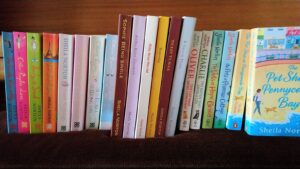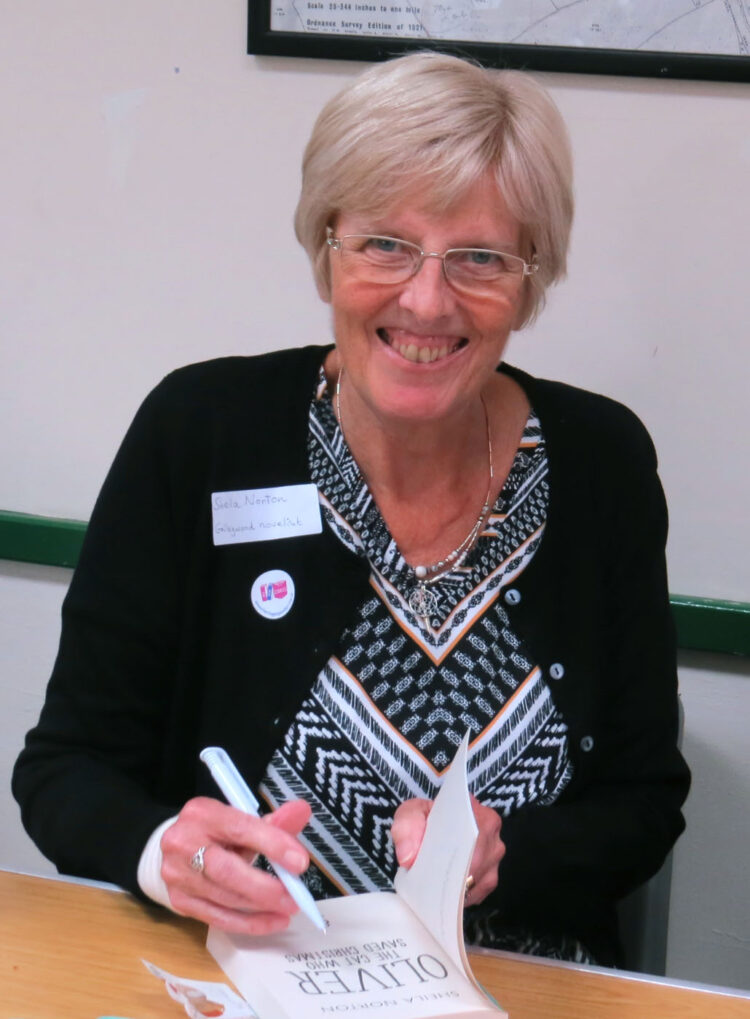Sheila Norton is an award-winning writer with many publications to her name, some of which have been translated into other languages. Sheila is a member of the Society of Authors and the Romantic Novelists’ Association.
We caught up with Sheila to ask her some questions to share with our writers…
 How did you first get published?
How did you first get published?
I was already published as a short story writer for women’s magazines, but the market for these was beginning to shrink at the end of the 1990s so I was determined to finally complete a novel! I decided to write a ‘chick-lit’ type of story (‘Bridget Jones’ Diary’ was big at the time) but with an older heroine. I’d turned 50 myself and didn’t see why all the chick-lit novels were about younger women. After 18 months of submitting to agents and publishers, ‘The Trouble with Ally’ was finally accepted in 2002 and published in 2003.
Have you encountered much rejection and how did/do you deal with it?
Oh yes! Plenty of rejections, like most authors! It’s all part of the job, unfortunately, and needs to be balanced against the successes and the highs. When I’ve had really disappointing setbacks, I’ve tried to be pragmatic and remember that I was so lucky to have achieved my lifetime’s ambition to be a published author in the first place. Everything that’s come since has been a bonus!
As an established author, has the process of writing become easier over time and, if so, in what ways?
Yes, it’s easier now, but I think only because I’m now retired from the day job! Writing was always my hobby and my passion, so whether I was any good or not, I never found it hard – apart from finding enough time for it, alongside a busy job. Now my time is my own, I don’t have to fit my writing into evenings and weekends
Do you have a writing routine?
I’m happy to say I don’t! I kissed routines goodbye when I left the day job behind. I’m now in the nice position of being able to write whenever I want to, but I still make time for other things of course – family, friends, travel, and so on.
What’s your editing process?
I try not to edit too much until the first draft is finished, although there are occasions when I realise something really does need to be changed before I can move on with the story. By the time I get to the end, I’ll have made a note of things I want to go back and change, or at least check, and I do this first before reading the entire book through, two or three times, making any further amendments. Then the book goes to my agent and finally my editor. The serious editing then begins when my editor makes her suggestions!
Where does your inspiration come from?
Mostly just from everyday life. My novels are all about relationships – the ups and downs of life, with husbands and wives, parents and children, friends, colleagues, lovers – and yes, recently even with pets and their owners! Stories are all around us, wherever people are trying to manage their lives and problems together. As far as the recent pet-centric novels are concerned, I’ve had two dogs and three cats in the past and now have two newly adopted cats. So I have a ready supply of memories and new inspiration there!
When you have an idea for a novel, how do you know it’s a good one with legs?
I don’t think anyone ever really knows that for sure, when they start writing a new story. I do now run a synopsis past my agent and editor before starting, but mostly it’s just a question of plunging in and hoping for the best!
What has been your biggest challenge in your writing career?
Hmm, there have been a few, so it’s quite hard to choose! Possibly being asked to write a series of three books under a different name, without revealing who I was . . . Or perhaps when I was between publishers, and taught myself self-publishing so that I could re-publish my earlier novels – plus six new ones. Or even when I was suddenly commissioned by my new publisher to write ‘Oliver, the Cat Who Saved Christmas’ – with a deadline of just four months. Funnily enough it’s been one of my most successful books!
What’s the best single piece of advice you could give an aspiring author, setting out on novel writing?
I always advise people not to even contemplate writing a novel unless they absolutely love writing so much that they can’t help themselves! It should be what you do for pleasure, otherwise there’s no point. Very few authors, even if they’re lucky enough to get published, ever make a living from it, let alone become rich and famous! But if you’re prepared to work hard, take criticism and disappointment on the chin, and be adaptable, then there’s nothing better than being paid – even if only a little! – for doing what you love best.
Please stop by Sheila’s website and check out her work.

